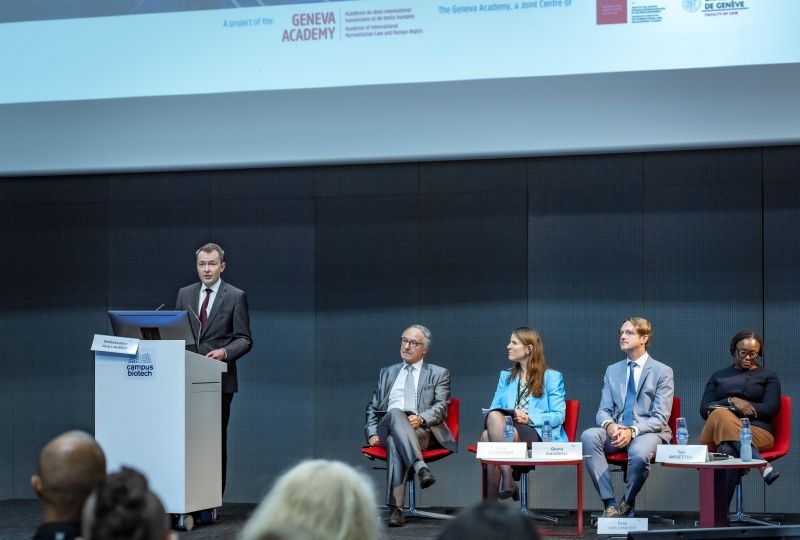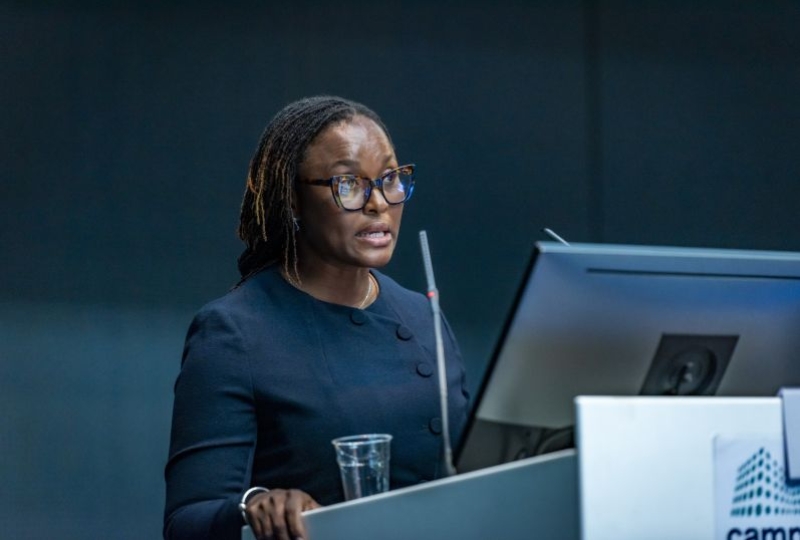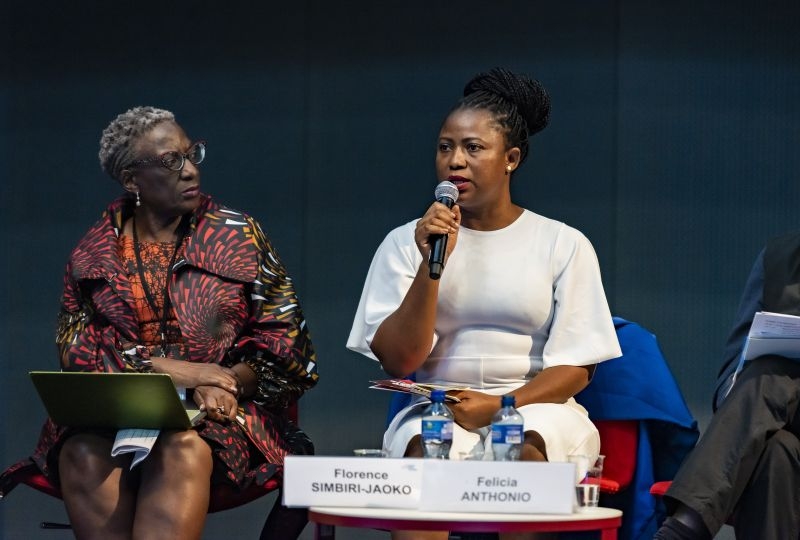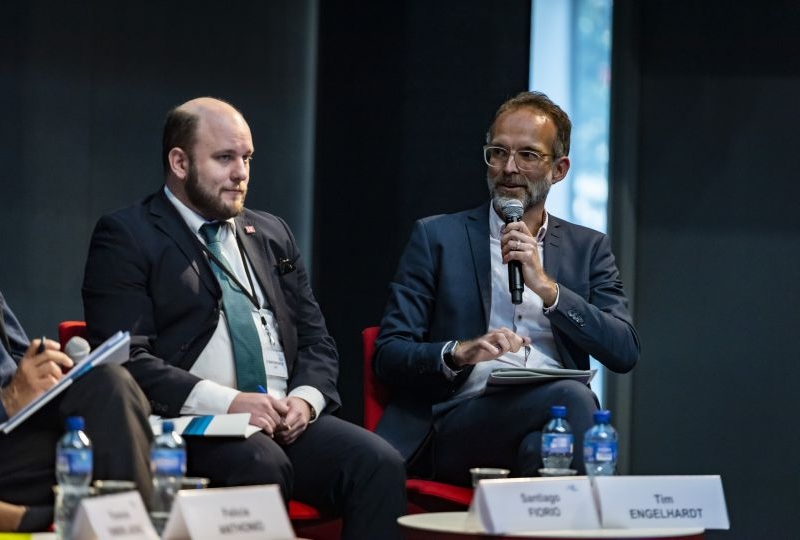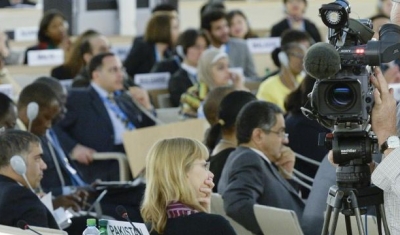The afternoon’s public segment of the conference addressed – via two panels – the impact of digitalization on human rights, the implications of being ON and OFF the grid, and the role of UN human rights mechanisms.
One main question discussed was the need for new e-rights and whether the interpretation of existing rights is sufficient or whether we need new rights, such as the right to online connectivity.
As the Rector of the University of Geneva, Professor Yves Flückiger pointed out in the opening: ‘For some parts of the global population, the dichotomy ‘online-offline’ is blurring ever more. We become super-connected and combine the online and offline aspects of our lives in all aspects. In university, we also promote open science, and open access to data and research, but this openness also would also entail security risks’.
Ambassador Jürg Lauber, Permanent Representative of Switzerland to the UN in Geneva, recalled Switzerland’s principled stand as formulated in the Swiss digital foreign policy strategy: ‘Human rights are equally valid in both the physical and the digital worlds and they apply without geographical restrictions online and offline’. He also stressed that the ‘universality’ of human rights takes a new meaning and dimension brought by the 4th industrial revolution. Aside from new dimensions to traditional rights, such as freedom of expression, a new interpretation of article 19 of the International Covenant on Civil and Political Rights would also include a right to internet access. Relating to the panels of the conference, he called for robust regulation for surveillance technology and also cautioned that ‘ technical solutions alone will not bridge digital divides and mend inequalities in access and use of digital technologies. Digital inclusion rests on meaningful connectivity and access, digital literacy and empowerment of users.’
Turning to the role that UN human rights mechanisms can play in this field, Professor Gloria Gaggioli, Director of the Geneva Academy, added: ‘We see in recent times growing interest and output by the UN human rights bodies on topics relating to the internet and digitalization.’ But a next step beyond the individual examples could be providing a comprehensive take on digitalization.



